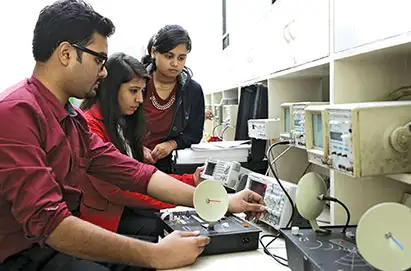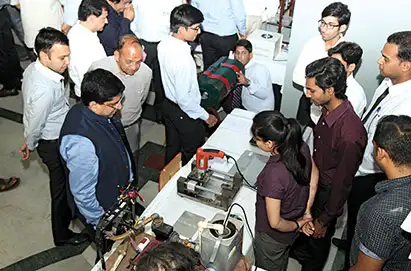The Department of Electronics & Communication Engineering (ECE) was established in 1997 with a focus on imparting fundamental concepts both theoretically and practically. It focuses on the study, design, development, and application of electronic devices, communication systems, and related technologies. ECE plays a crucial role in the advancement of modern technology, particularly in the fields of telecommunications, information technology, and electronics. Keeping in view the growth in industry and increasing demand, the department also offers some industry associated courses.
To meet the needs of industry and R&D organizations, the course curriculum has been carefully customized to meet the rising global outlook and focuses on forthcoming innovations in the field of Electronics and Communication Engineering. Graduates with a degree in Electronics and Communication Engineering can pursue careers in a wide range of industries, including telecommunications, electronics manufacturing, information technology, research and development, and more.
They can work as electronics engineers, communication engineers, network engineers, embedded systems developers, and research scientists, among other roles. The field of ECE is dynamic and constantly evolving, contributing to advancements in technology that impact various aspects of modern life. The B.Tech (ECE) programme offered by the Department has been accredited thrice by the National Board of Accreditation (NBA) in 2004, 2007 and 2018.
B.Tech Electronics & Communication Engineering






